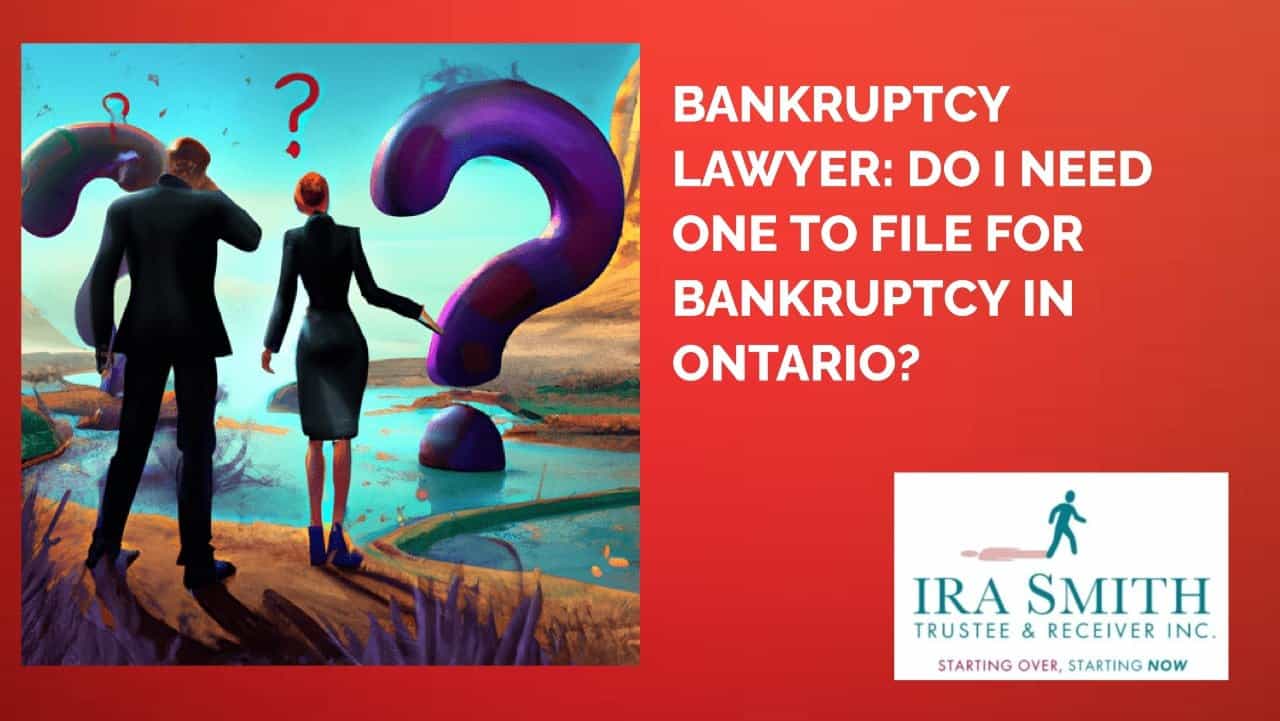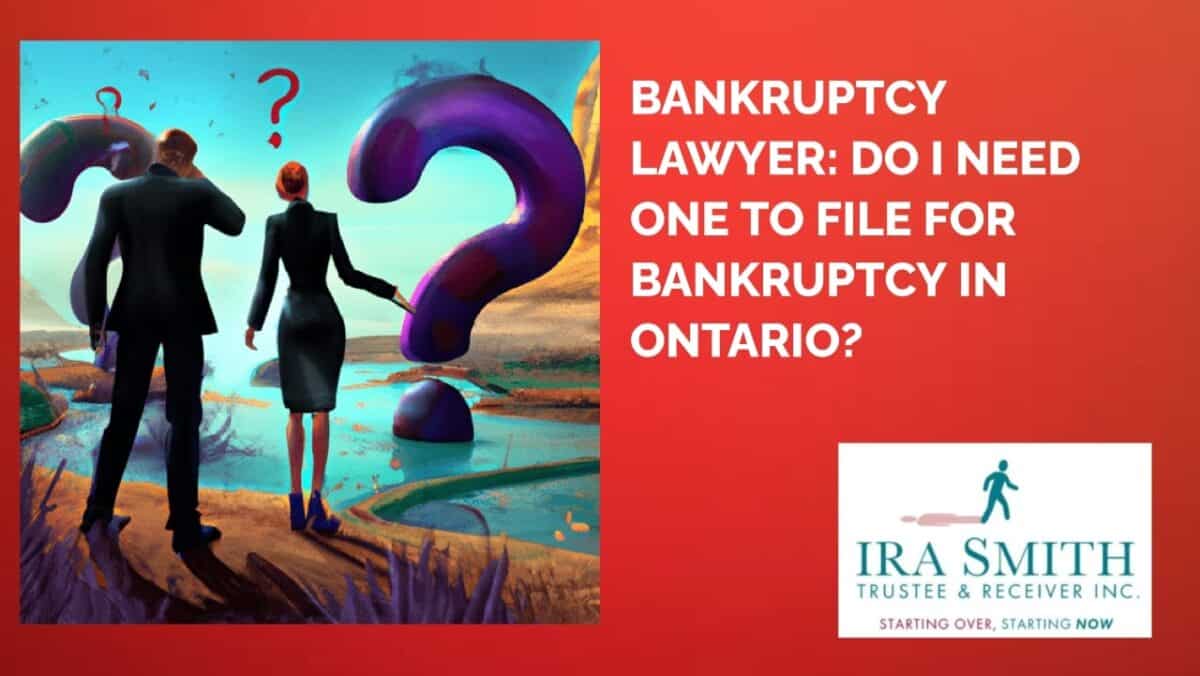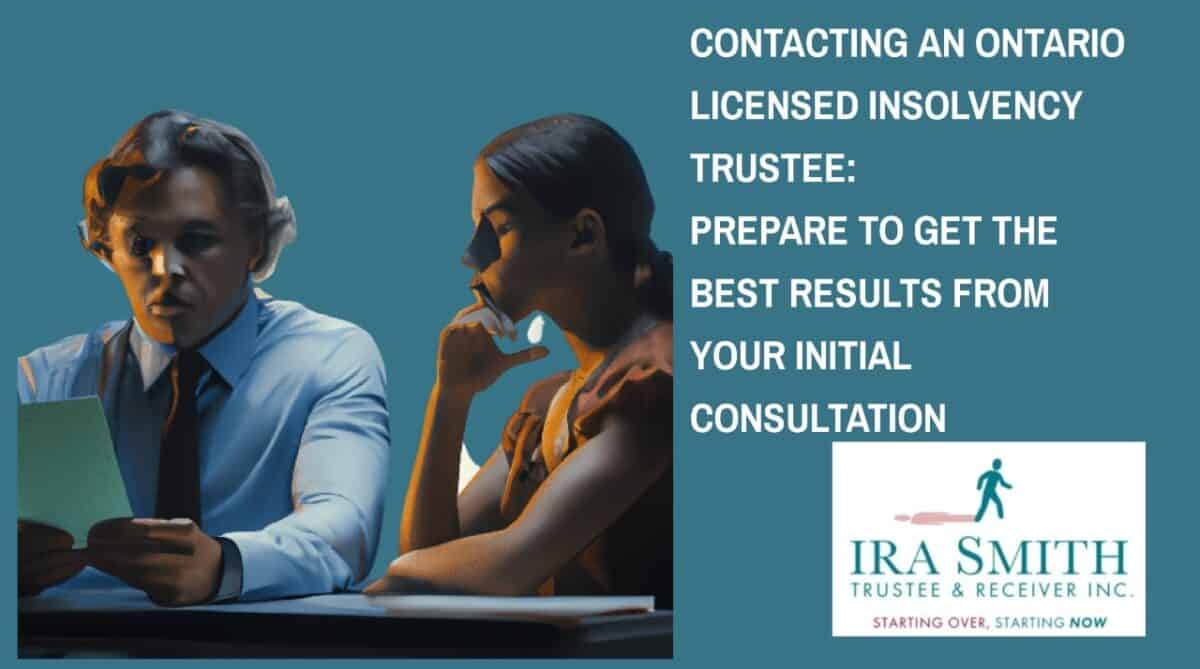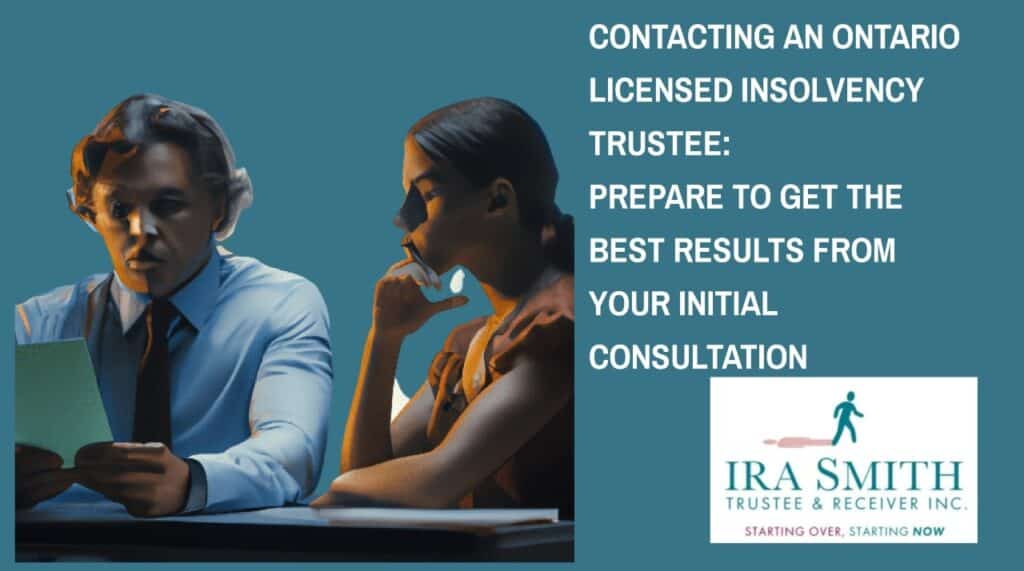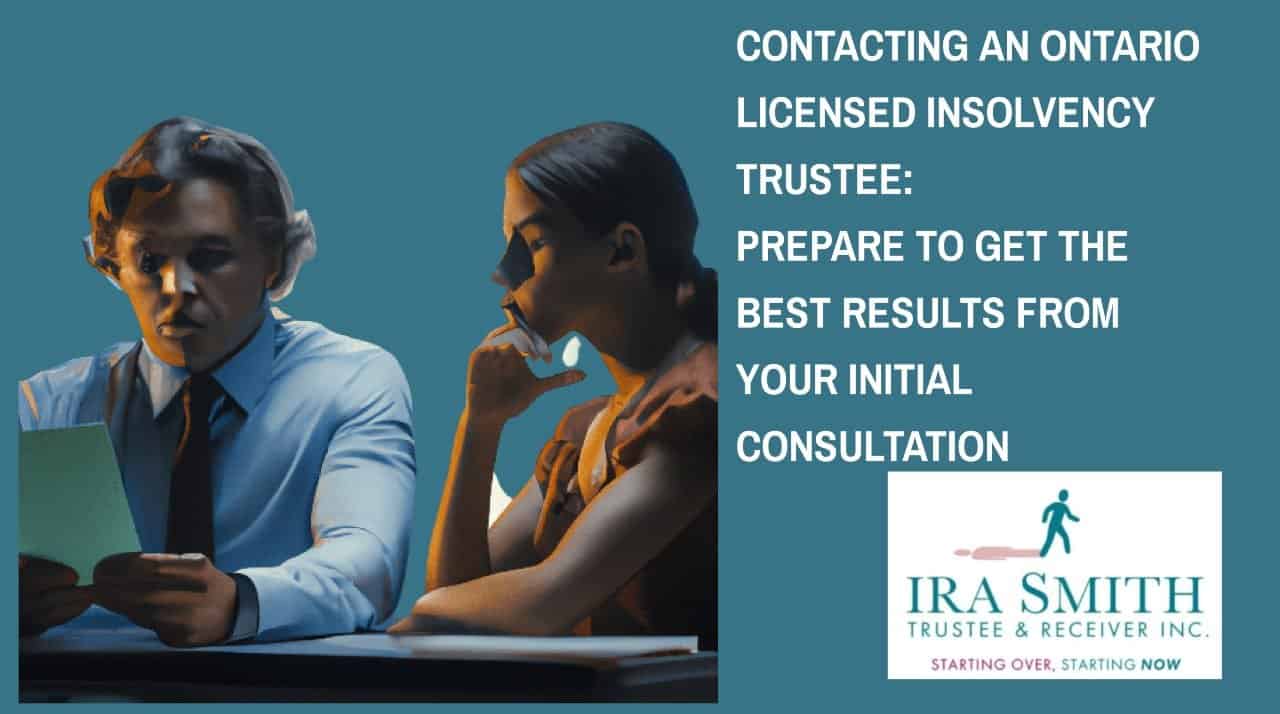Bankruptcy lawyer: Introduction
Step right into this week’s edition of Brandon’s Blog, where we’re embarking on a profound exploration. Our focus today delves into a crucial theme that carries substantial weight within the psyche of a myriad of Canadian consumers grappling with financial adversity, as well as Canadian business owners navigating their enterprises with too many business debts through fiscal quandaries. The question at the forefront: do the circumstances warrant enlisting the expertise of a bankruptcy lawyer when contemplations of insolvency filings in Canada take center stage?
Venturing through the intricate landscape of insolvency and the realms of personal or corporate bankruptcy has the potential to stir feelings of frustration and helplessness. This sentiment amplifies mainly when the trajectory of your personal or corporate fiscal destiny hangs in a precarious balance, swaying like a delicate pendulum. The gravity of making prudent choices during this trying juncture cannot be overstated. At its core, lies the quintessential need to not only identify the right course but also to discern the adept professional from whose wellspring of wisdom guidance should be sought.
In this Brandon’s Blog, I will outline the scenarios in which consulting with a bankruptcy lawyer is highly advised, but as you will see, it is not essential in every circumstance. Whether you are taking into consideration submitting a restructuring proposal or seeking bankruptcy protection, recognizing who to turn to for specialist assistance for legal and financial advice can substantially affect the result of your financial journey.
I will discuss the intricate details surrounding insolvency as well as bankruptcy law in Canada. By diving into the significance of professional assistance and support, I intend to equip you with the understanding needed to make enlightened decisions during this difficult phase. Join me as we decipher the secrets of insolvency and bankruptcy and empower ourselves to safeguard a better financial future.
Bankruptcy lawyer: Overview of the insolvency and bankruptcy process in Canada
The bankruptcy procedure in Canada is governed by the Bankruptcy and Insolvency Act (BIA). It is a legal statute developed to supply relief to people and companies that are unable to pay their financial obligations. The process always includes the services of a Licensed Insolvency Trustee that is responsible for administering the insolvency process.
The Licensed Insolvency Trustee is first required to assess the debtor’s entire financial situation, including the causes of the insolvency, the current financial position and the nature of the assets and liabilities of the debtor. The Licensed Insolvency Trustee then needs to make recommendations to the debtor to solve their current financial crisis. Once agreed on, what insolvency or bankruptcy process will be implemented, the BIA and the restructuring consumer proposal, Division I proposal or the bankruptcy, is put into operation to offer a fresh start for the debtor while making certain there is fair treatment for the creditors.
A Licensed Insolvency Trustee is the only professional licensed in Canada by the federal government to administer the Canadian insolvency process chosen. In many cases, the process can be carried out without the advice of a bankruptcy lawyer.
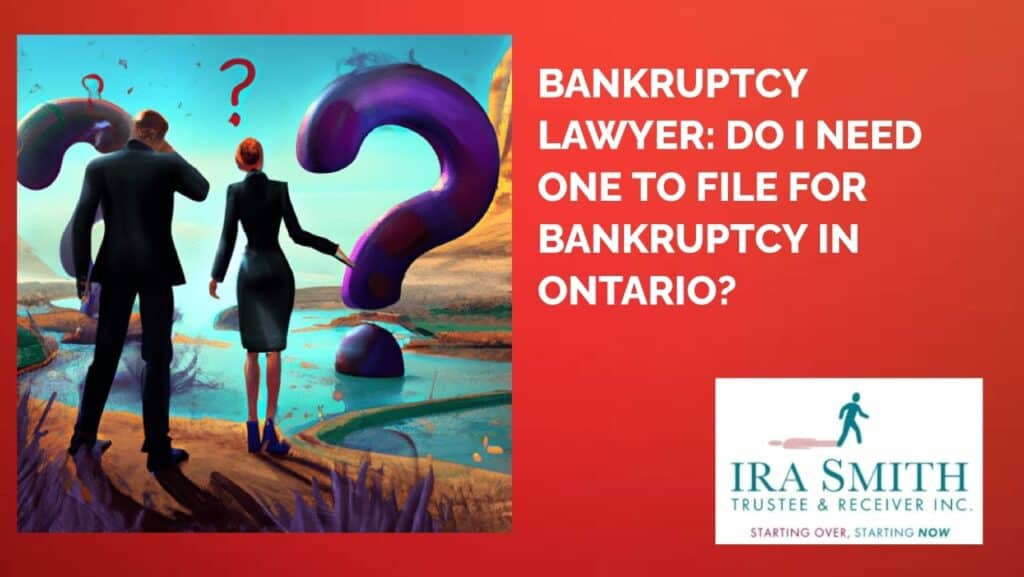
Bankruptcy lawyer: Formal insolvency options in Canada
Navigating the intricate labyrinth of bankruptcy within Canada unfurls as a legal undertaking of profound significance, extending its benevolent embrace to both individuals and enterprises ensnared within the inescapable clutches of their fiscal commitments. This orchestrated progression finds its regulatory compass in the venerable BIA, its vigilant guardianship entrusted to a duly licensed sentinel of fiscal adversity, recognized as a Trustee.
Commencing this odyssey, the debtor sets forth to formally lodge their supplication for bankruptcy, an entreaty promptly received by the Licensed Insolvency Trustee, who, in turn, undertakes the judicious scrutiny of the debtor’s economic constellations. From this intricate appraisal blooms a stratagem, a masterwork designed to navigate the undulating terrain of debt repayment, fostering equilibrium amid the ranks of creditors.
Through the procession of this intricate ballet, the debtor finds sanctuary from the clamorous onslaught of creditor collections, an ephemeral respite nestled within the folds of the overarching process. This respite, however, is not a sojourn of idle reprieve; it entails the debtor’s obligatory participation in the convocations of credit counsel, a didactic interlude intended to illuminate the labyrinthine corridors of fiscal wisdom.
Once the intricacies of this design garner the seal of approval, the gears of asset liquidation are set into motion, unfurling a cascade of transactions wherein the debtor’s holdings metamorphose into liquid currency, a tribute disseminated among the consortium of creditors who await their apportioned spoils.
The culmination of this voyage heralds the debtor’s liberation from the shackles of residual indebtedness, a phoenix rising from the embers of fiscal duress, reborn into a realm unburdened by the obligations that once ensnared them.
The formal insolvency options in Canada are described below.
Insolvency and debt relief solutions for individuals –
- Restructuring by making monthly payments under a consumer proposal for those who owe $250,000 or less (not including any debts secured by and registered against a person’s residence).
- Financial restructuring under a Division I proposal, for those who owe more than $250,000.
- Personal bankruptcy.
Insolvency and debt relief options for companies –
- Financial restructuring under a Division I proposal as an alternative to bankruptcy.
- Sale of assets through a receivership enforcement process initiated by a secured creditor.
- Restructuring for companies that owe $5 million or more under the Companies’ Creditors Arrangement Act (CCAA).
- corporate/business bankruptcies..
How a bankruptcy lawyer can assist you: Importance of seeking legal advice in certain situations
In certain situations, looking for the advice of a Canadian bankruptcy lawyer is of utmost significance. An insolvency or bankruptcy filing is an intricate legal process that needs careful consideration of an individual’s financial scenario. A bankruptcy legal representative can assist with whether corporate or personal bankruptcy, as the case may be, is the best option, the kinds of insolvency processes readily available, and the connected lawful obligations and effects.
Furthermore, individuals can seek assistance from a bankruptcy lawyer to guide them through the legal procedures. It is highly recommended that consumer debtors seek advice from both a licensed insolvency trustee and a bankruptcy lawyer in certain circumstances. Some typical scenarios that warrant additional counsel from a bankruptcy lawyer well-versed in insolvency law include:
- They are involved in complex family law proceedings.
- There are one or more legal actions against you that allege unlawful behaviour, such as fraud or fraudulent misrepresentation or the conversion of someone else’s property, such as funds held in trust.
- The bankrupt’s application for discharge from bankruptcy is being opposed and therefore there will be a court hearing.
- Their financial situation is intertwined with other issues where confidential consultation with legal advice is required and that advice must be protected by solicitor-client privilege.
- There are special asset considerations where a privileged discussion with a bankruptcy lawyer is essential before seeking advice and assistance from a Licensed Insolvency Trustee.
In corporate insolvency situations, we always recommend that the Directors obtain legal advice from a bankruptcy lawyer in addition to the corporation obtaining legal assistance.
A bankruptcy lawyer can provide customized guidance in such touchy situations as well as representation to guarantee the most effective feasible outcome for their clients.

Can I file for bankruptcy without a bankruptcy lawyer in Canada?
While it is possible to declare bankruptcy without a bankruptcy lawyer in Canada, it is recommended to seek legal counsel for complex corporate and personal filings. Hiring a bankruptcy attorney supplies several advantages, including knowledge of insolvency legislation, assistance in more complex proceedings and guidance on unusual issues, specific unique creditor issues or claims and personal liability under any personal guarantees.
In addition, a bankruptcy lawyer can represent you in court proceedings such as with litigants who have obtained approval of the court to continue litigation against the debtor and on a personal bankruptcy discharge hearing. This will guarantee that your legal rights are safeguarded throughout the process. Therefore, in these kinds of consumer and corporate insolvency matters, it is smart to talk to a qualified bankruptcy lawyer to ensure a smoother and much more successful bankruptcy process in Canada.
Determining the necessity of enlisting the services of both a bankruptcy lawyer and a Licensed Insolvency Trustee: Is a bankruptcy lawyer required to initiate bankruptcy proceedings in Canada?
Filing for bankruptcy in Canada can be a complex as well as stressful process, however, as defined above, it is feasible to do it without the help of a bankruptcy lawyer. A bankruptcy lawyer cannot launch the bankruptcy process in Canada. In Canada, bankruptcy, as well as any other insolvency process, is launched and administered by Licensed Insolvency Trustees that are qualified and also supervised by the Office of the Superintendent of Bankruptcy (OSB). So when someone files for bankruptcy, it is done with a trustee in bankruptcy (this is the old name for a Licensed Insolvency Trustee).
Trustees are accountable for overseeing and handling the Canadian bankruptcy and insolvency procedures, including the liquidation of assets and the distribution of proceeds to creditors for unsecured debts. They additionally offer debtors financial counselling, therapy and support on how to handle their financial resources in the future. To end up being a Trustee, people need to satisfy particular educational and professional requirements, consisting of completing specialized training, courses and examinations. Thus, Canadians can trust that their insolvency, as well as personal bankruptcy procedures, are being managed by qualified and also experienced professionals.
Regardless of the guidance and aid regarding your financial affairs from a Licensed Insolvency Trustee before and also after the initiation of a financial restructuring or personal bankruptcy process, a Licensed Insolvency Trustee practically acts on behalf of the unsecured creditors. So, for circumstances like those described above, if any debtor has an extra complicated scenario, is associated with sticky scenarios or is concerned about the director or personal responsibility as a result of a business restructuring or bankruptcy, then the recommendations of a bankruptcy lawyer should be acquired before entering into any insolvency procedure.

Bankruptcy lawyer and a Licensed Insolvency Trustee: Determining the necessity of enlisting the services of both a bankruptcy lawyer and a Licensed Insolvency Trustee
There arise certain junctures where the imperative of engaging a proficient bankruptcy lawyer to adroitly navigate the intricate labyrinth of the Canadian bankruptcy process becomes unequivocal. As expounded upon earlier, should your fiscal panorama manifest intricacies reminiscent of a Byzantine tapestry, replete with an entanglement of debts and creditors, the tutelage and expertise proffered by a bankruptcy lawyer morph into an invaluable compass.
The determination of the exigency to enlist the services not only of a bankruptcy lawyer but also of a bankruptcy trustee constitutes a pivotal crossroads for both individuals and enterprises ensnared in the throes of financial quandaries. While a bankruptcy lawyer adroitly dispenses legal counsel and advocates in the corridors of justice, a bankruptcy trustee’s role expands to encompass the labyrinthine realm of debt reorganization, proposal filings, and the art of debt alchemy. Their convergence encapsulates a holistic stratagem in the pursuit of resolving the monetary labyrinth.
Grasping the complexity inherent in bankruptcy law is tantamount, and a seasoned bankruptcy lawyer deftly steers through the legal firmament, charting a course that aligns with the best nexus of legal tenets. Conversely, a Licensed Insolvency Trustee proffers a detached analysis of the financial constellation, endowing clients with an array of options extending beyond the binary realm of bankruptcy and answering any questions about bankruptcy you may have.
At its essence, the verdict to summon forth both the prowess of a bankruptcy lawyer and the sagacity of a Trustee should hinge upon the unique tapestry woven by individual circumstances and the crystalline aspirations of the client. Ultimately, it comes down to the complexity and sensitivity of the person’s or company’s overall situation.
How to find a qualified bankruptcy lawyer or Licensed Insolvency Trustee in Ontario
When confronted with financial troubles in Canada, it’s important to make informed choices. If you’re thinking about bankruptcy, it’s smart to seek guidance from a Licensed Insolvency Trustee. These professionals can assist you through the intricate procedure and also give important understanding.
For those with especially complicated financial circumstances, or who is a corporate director of an insolvency company, it might be essential to employ the help of a seasoned bankruptcy lawyer.
Starting your search for trustworthy professionals can be frustrating. Nonetheless, a calculated strategy can aid. Begin by discovering the Law Society of Ontario’s website, where you’ll discover a comprehensive list of competent legal experts that concentrate on bankruptcy and insolvency.
To locate a bankruptcy trustee near you, explore the computerized database of the OSB. This will certainly give a list of bankruptcy trustees in your locale to seek insight, advice and assistance. For both a bankruptcy lawyer as well as a Trustee, it is essential to engage in a comprehensive conversation with any prospective advisor, delving into their specialist background, navigational technique, and cost structure.
Efficiency is not the only aspect to think about; reliability and also the personal vibe you get from that person to see if you make a connection are likewise essential elements that need to inform your decision. By locating an ally who can give adept support throughout this challenging period, you can navigate this hard juncture with greater ease as well as confidence.
Finally, check out Google and other online reviews. There is nothing better than reviews from people who were in your shoes before and sought assistance from a Licensed Trustee, bankruptcy lawyer or both. Their experience and insight into specific professionals will help you immensely. Things to look for include:
- What service did they perform for the person?
- Does the reviewer live in your general area?
- Did the professional do a good job?
- What were some of the reviewer’s favourite things in working with that professional?
- Did they work with any specific people in the firm that they highly recommend?
- How did the Licensed Insolvency Trustee or bankruptcy lawyer they chose to compare to others they may have consulted with?
- Are there any tips the reviewer offers to others?
Bankruptcy lawyer: Conclusion
Looking for legal advice when considering bankruptcy is not needed in every scenario. However, it is necessary when it concerns complicated plans. Hiring a qualified bankruptcy lawyer can provide countless benefits. They have the proficiency as well as knowledge to advise you before embarking on a bankruptcy process and afterwards to assist you with the whole procedure.
When considering filing an assignment in bankruptcy in Canada, it is crucial to comprehend the complexities of the process and also the potential effects. While it may be possible to navigate through it without an insolvency lawyer, talking to one will supply the specialist expertise necessary to guarantee a smooth and efficient process when you have complex or unique issues in your situation.
From evaluating your financial situation to exploring alternatives such as a restructuring proposal, a bankruptcy lawyer can direct you through the legal puzzle and also suggest the most ideal strategy. When it concerns matters as substantial as bankruptcy, seeking expert help is a sensible choice to secure your best interests and also secure a fresh financial start.
I hope you enjoyed this bankruptcy lawyer Brandon’s Blog. Problems with making ends meet are a growing concern in Canada, affecting individuals of all ages and income levels.
Creating a solid financial plan can be the key to unlocking a brighter and more prosperous future. By taking control of your finances, you can prioritize your expenses, set clear financial goals, and build a strong foundation for your dreams to come true. With the right mindset and approach, financial planning can empower you to regain control, eliminate this issue as a source of stress in your life and find peace of mind.
Individuals must take proactive measures to address financial difficulties and promptly seek assistance when necessary. It is crucial to recognize that financial stress is a prevalent concern and seeking help is a demonstration of fortitude, rather than vulnerability. Should you encounter challenges in managing your finances and find yourself burdened by stress, do not delay in pursuing aid.
Revenue and cash flow shortages are critical issues facing people, entrepreneurs and their companies and businesses with debt problems that are in financial distress. Are you now worried about just how you or your business are going to survive? Are you worried about what your fiduciary obligations are and not sure if the decisions you are about to make are the correct ones to avoid personal liability? Those concerns are obviously on your mind.
The Ira Smith Team understands these financial health concerns. More significantly, we know the requirements of the business owner or the individual that has way too much financial debt. You are trying to manage these difficult financial problems and you are understandably anxious.
It is not your fault you can’t fix this problem on your own and it does not mean that you are a bad person. The pandemic has thrown everyone a curveball. We have not been trained to deal with this. You have only been taught the old ways. The old ways do not work anymore. The Ira Smith Team uses innovative and cutting-edge methodologies, to adeptly navigate you through the intricacies of your financial challenges, ensuring a resolution to your debt-related predicaments without resorting to the rigours of the bankruptcy process. We can get you debt relief now!
We have helped many entrepreneurs and their insolvent companies who thought that consulting with a Trustee and receiver meant their company would go bankrupt. On the contrary. We helped turn their companies around through financial restructuring.
We look at your whole circumstance and design a strategy that is as distinct as you are. We take the load off of your shoulders as part of the debt settlement strategy we will draft just for you.
The Ira Smith Trustee & Receiver Inc. team understands that people facing money problems require a lifeline. That is why we can establish a restructuring procedure for you and end the discomfort you feel.
Call us now for a no-cost consultation. We will listen to the unique issues facing you and provide you with practical and actionable ideas you can implement right away to end the pain points in your life, Starting Over, Starting Now.
